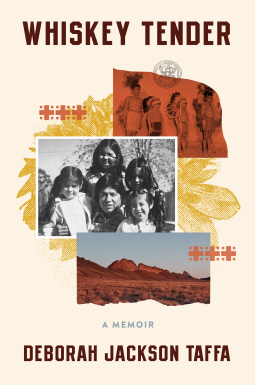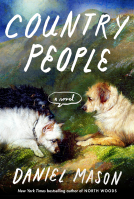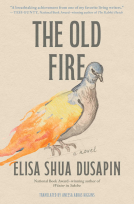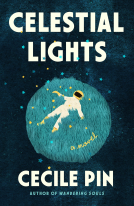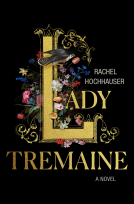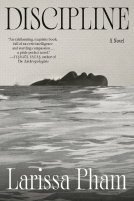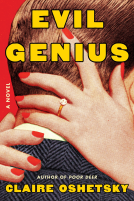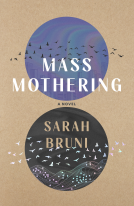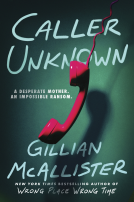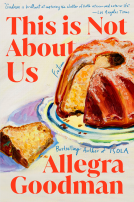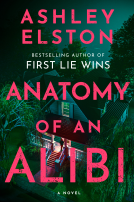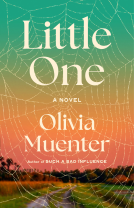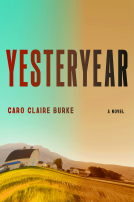Whiskey Tender
A Memoir
by Deborah Taffa
You must sign in to see if this title is available for request. Sign In or Register Now
Send NetGalley books directly to your Kindle or Kindle app
1
To read on a Kindle or Kindle app, please add kindle@netgalley.com as an approved email address to receive files in your Amazon account. Click here for step-by-step instructions.
2
Also find your Kindle email address within your Amazon account, and enter it here.
Pub Date Feb 27 2024 | Archive Date Not set
Talking about this book? Use #WhiskeyTender #NetGalley. More hashtag tips!
Description
Finalist for the National Book Award
Longlisted for a Carnegie Medal for Excellence
Winner of the Southwest Book Award
A Best Book of the Year: Washington Post, Esquire, Time, The Atlantic, NPR, and Publishers Weekly
An Oprah Daily "Best New Book" and "Riveting Nonfiction and Memoir You Need to Read" * A New York Times "New Book to Read" * A Zibby Mag "Most Anticipated Book" * A San Francisco Chronicle "New Book to Cozy Up With" * The Millions "Most Anticipated" *An Amazon Editors "Best Book of the Month" * A Parade "Best New Work By Indigenous Writers" * An NPR "Book We Love"
“We have more Native stories now, but we have not heard one like this. Whiskey Tender is unexpected and propulsive, indeed tender, but also bold, and beautifully told, like a drink you didn’t know you were thirsty for. This book, never anything less than mesmerizing, is full of family stories and vital Native history. It pulses and it aches, and it lifts, consistently. It threads together so much truth by the time we are done, what has been woven together equals a kind of completeness from brokenness, and a hope from knowing love and loss and love again by naming it so.” — Tommy Orange, National Bestselling Author of There There
Reminiscent of the works of Mary Karr and Terese Marie Mailhot, a memoir of family and survival, coming-of-age on and off the reservation, and of the frictions between mainstream American culture and Native inheritance; assimilation and reverence for tradition.
Deborah Jackson Taffa was raised to believe that some sacrifices were necessary to achieve a better life. Her grandparents—citizens of the Quechan Nation and Laguna Pueblo tribe—were sent to Indian boarding schools run by white missionaries, while her parents were encouraged to take part in governmental job training off the reservation. Assimilation meant relocation, but as Taffa matured into adulthood, she began to question the promise handed down by her elders and by American society: that if she gave up her culture, her land, and her traditions, she would not only be accepted, but would be able to achieve the “American Dream.”
Whiskey Tender traces how a mixed tribe native girl—born on the California Yuma reservation and raised in Navajo territory in New Mexico—comes to her own interpretation of identity, despite her parent’s desires for her to transcend the class and “Indian” status of her birth through education, and despite the Quechan tribe’s particular traditions and beliefs regarding oral and recorded histories. Taffa’s childhood memories unspool into meditations on tribal identity, the rampant criminalization of Native men, governmental assimilation policies, the Red Power movement, and the negotiation between belonging and resisting systemic oppression. Pan-Indian, as well as specific tribal histories and myths, blend with stories of a 1970s and 1980s childhood spent on and off the reservation.
Taffa offers a sharp and thought-provoking historical analysis laced with humor and heart. As she reflects on her past and present—the promise of assimilation and the many betrayals her family has suffered, both personal and historical; trauma passed down through generations—she reminds us of how the cultural narratives of her ancestors have been excluded from the central mythologies and structures of the “melting pot” of America, revealing all that is sacrificed for the promise of acceptance.
Available Editions
| EDITION | Other Format |
| ISBN | 9780063288515 |
| PRICE | $30.00 (USD) |
| PAGES | 304 |
Available on NetGalley
Featured Reviews
This is the best memoir I've read in maybe the last 5 years. Taffa tells a story that is so moving and so important and I hope everyone, literally, everyone, reads Whiskey Tender.
I am so grateful to Deborah Taffa for gifting us with Whiskey Tender and her life story. Taffa is my age, and yet her formative years were so different from my own - growing up "half-breed" with grandparents who were born to the Quechan Nation and Laguna Pueblo tribe, a mother who was raised Catholic, and a father raised in the Native American traditions. From the perspective of a girl growing up among so many different worlds, Taffa explores the difficult issues of reconciliation, assimilation, segregation and tradition. This memoir is educative and evocative and an important addition to an ugly (and still unresolved) chapter of American history.
 Julianne W, Reviewer
Julianne W, Reviewer
Whiskey Tender is “born of nostalgia,” that acute longing for home, which Deborah Jackson Taffa’s Laguna Grandmother, Esther, taught her is the forebear of most “recitation, poetry, and writing” (279). Because, as Laguna writer Leslie Marmon Silko said, “it’s only in a state of nostalgia that we can see things clearly” (280). Home is a geography of relationships blended with time, which Taffa considers, as she writes, from a distance.
Taffa's memoir follows a chronological line, which traces her own childhood maturation. While personal change intersects with doggedly researched intergenerational dimensions of “post-apocalyptic difficulties we were enduring” (200) as a family with heritages including Laguna Pueblo, Quechan (Yuma), Shoshone-Paiute, and Spanish and Genízaro (kidnapped and enslaved Native persons engulfed by Spanish colonialism).
Taffa’s story of persistent harms by gaslighting institutions and policies rooted in genocidal intentions of Spanish and other European colonizers and of persistent Indigenous survival and collective continuance is an if not "the" iconic American one (16). While to stay alive, personally, Taffa is driven to puzzle together – and, gratefully, share – history that has been structurally rent, grossly simplified, lied about, and buried by colonial-assimilationist policies like white-washed, hegemonic school and church programming and Native relocation policies tearing apart kinship and ceremony and imposing shame. Taffa, for instance, inherits “two versions of oppression” internalized by her parents (142) – her “light-skinned” Spanish/Genízaro mom’s “inferiority complex with whites” and her darker-skinned Laguna-Quechan-Paiute dad’s feelings of lower status as a displaced “breed” of “mixed tribe” compared with “full-blood” Diné (Navajo) (26).
If nostalgia is its forebear, anger feels like a living heart in Taffa’s memoir, one who fleshes out into full-blown “rage...against the fear this country has of its own history” (209). This rage, for a season, turns inward with its underlying pain of violent injustice – of broken treaties, thefts, muzzlings, and/or woundings of the very conditions of home – of land, kin, identity and belonging, norms of “success,” truths of languages and stories, and of Quechan dream traditions – and almost, but, gratefully, does not kill the author. The need to reassemble herself with the courage to replace shame with self-love and to attune with ancestral undercurrents of reconnective strength and lands’ music, wherever she may be – longing for the desert and dwelling within it – is steadying.
I do not feel, as a white settler, alienated by her story, as she hoped we would not (16). Rather, I resonate with the lasting tones of Taffa’s just anger alongside celebration. I feel invited into my own nostalgia to see, with clarity, my need to unweave personal home-longing from complicity with systemic home-taking. I feel called into solidarity with Taffa’s light flooding the still- “too many dark corners in America “(16) and into better worlds-making.
Maybe other readers of Taffa’s necessary and brilliant work will be similarly moved. I also hope that many educators will integrate Whiskey Tender into curricula across the U.S. and beyond.
 Geoffrey S, Librarian
Geoffrey S, Librarian
I honestly don’t know where to start on everything that I was able to learn thanks to Deborah Tafa’s personal narrative and the way that it seamlessly blends her personal story and family history with plentiful amounts of general Native American history and Native American history pertaining specifically to the American southwest. “Whisky Tender” ended up providing quite the hefty education that I immediately valued immensely, speaking as someone whose own education about indigenous Americans wasn’t so much an education as it was a nearly total lack of one. I appreciated the way that Taffa managed to expose my now-glaring knowledge gaps on numerous indigenous-related matters that I wasn’t even aware of before promptly proceeding to give me a helpful foundation to filling them in.
However, even by some miracle I had been able to go into this book already completely up to date on the aforementioned, I still would have treasured reading it all the same. It’s still a beautifully honest and open memoir about growing up and trying to navigate the sharp disconnect between a white-centric mainstream culture, the so-called American dream and her own native identity. Also, speaking as a descendant of European settlers and immigrants - the country as Taffa has lived it and as I have lived it so far are extremely different experiences (and that’s such an understatement that it almost feels like a crime). And it’s not often that I get the valuable opportunity to get at least a glimpse into this part of America, much less one so very deeply intimate.
“Whisky Tender” is definitely one of my favorite nonfiction reads of 2023, and one of my favorite reads of the year in general - and in my opinion, it’s now an absolute must-have for the shelves of my local public library and the academic library where I work.
